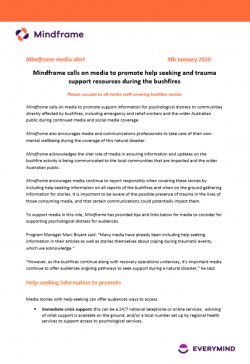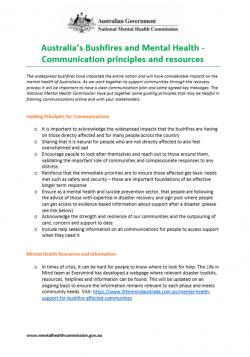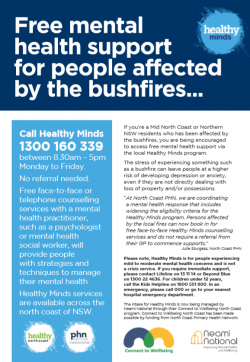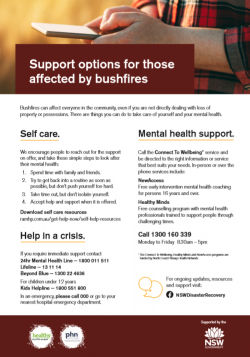
NSW bushfires information
Bushfires in Australia can occur at any time, although some regions will be at greater risk at a particular time of the year. In unfortunate circumstances they can lead to a natural disaster. Understanding the bushfire risk in your area is important. Adequate preparation for such an event can help you protect yourself, your family and your community. This page has been created to provide advice to health professionals and community members in the Northern Sydney region.
Webinar for residents in the South Turramurra area – Ku-ring-gai Black Summer Bushfire Resilience and Recovery
When: 7:00 pm, 22nd February 2023
Where: Online
Description:
As part of funding received from Department of Industry, Science, Energy and Resources, Dr Penny Burns from Sydney North Health Network will present at this workshop on addressing unmet health needs following the Black Summer Bushfires for community resilience and recovery. This workshop is being delivered in partnership with Ku-Ring-Gai Council.
This webinar will utilise Ku-Ring-Gai Council’s award-winning Climate Wise Communities framework and will also be attended by the RFS and Fire & Rescue.
Sydney North Health Network’s involvement as a presenter and panellist will add a health lens to bushfire recovery, resilience, and preparedness. Focus groups will be established following this workshop and participants will be invited to participate.
Please note: registering for this online webinar is essential. Registrations will stop one hour before the event starts.
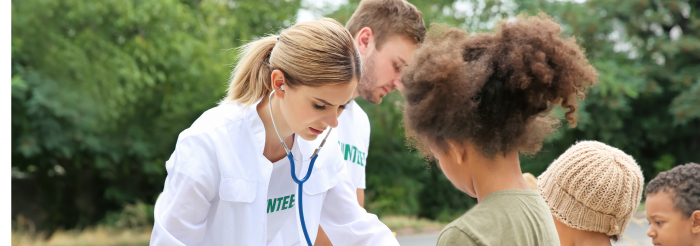
Bushfire information for health professionals
• How can I offer my skills as a health professional to support bushfire-affected areas?
Rural Doctors Network (RDN) and partner organisations are coordinating a response to provide General Practice and primary health care workforce support to areas of NSW affected by natural disasters.
They are seeking expressions of interest from healthcare professionals who can provide assistance and relief in communities. If you can help, please complete this Expression of Interest and a member of the RDN Recovery Team will contact you.
The callout from the RDN comes as the Australian Government implements emergency protocols to expedite the process of getting GPs and allied health workers to bushfire-affected communities. Read the media release here.
• How can I help shape Sydney North Health Network's climate and health strategy?
Sydney North Health Network will be developing our climate and health strategy over the coming months. This strategy will include a local-area response plan, education and capacity-building, and building a resilient and informed community in the health sector.
If you are interested in being part of the steering committee for our climate and health strategy, please contact us at communications@snhn.org.au. Please use the e-mail subject line “Steering committee interest – SNHN climate and health strategy”, and provide your contact details in the body of the e-mail. We thank you in anticipation for your interest.
• Where can I find resources for health professionals?
Resources to patients/clients and community members: Please refer to the Get help and support section.
NSW Health has resources on the following topics:
- Bushfire smoke: https://www.health.nsw.gov.au/environment/air/Documents/bushfire-smoke-health-alert-GPs.pdf
- Heat:
https://www.health.nsw.gov.au/environment/beattheheat/Pages/information-for-health-professionals.aspx
For general practitioners during the bushfire crisis, the RACGP has relevant resources to provide assistance with assessment and management of those affected, or call 1300‑361‑008. A reminder for general practitioners in bushfire areas to look after themselves: GP Support Program 1300‑366‑789 for 24 hours, 7 days emergency support and appointments at no cost.
https://www.racgp.org.au/bush-fires
Primary care services and concerns: First point of contact should be the Primary Health Network in the relevant region. Next point of contact (incl for urgent enquiries) is the National Incident Room at: Health.Ops@health.gov.au
If there are continuing problems with emergency medicines supplies, the Department can be contacted at: Health.Ops@health.gov.au
Contacts for more information: all Commonwealth relevant web pages will be coordinated under the National Bushfire Recovery Agency website. See www.disasterassist.gov.au Health statements are available at: www.health.gov.au/news
Providing mental health support for Australians affected by bushfires
MBS items 2121, 2150, 2196 and 894, 896, 898 were introduced on 1 November 2018 to enable people living in drought-declared communities to access mental health and well-being services from their usual doctor. The MBS requirements for these patients have not changed.
Eligible patients are:
– individuals or families who have been impacted by the 2019-20 bushfires
– responders or emergency management employees or volunteers affected by the 2019-20 bushfires.
For more information download the Information for Primary Health Networks facts sheet https://sydneynorthhealthnetwork.org.au/wp-content/uploads/2020/01/Information-for-PHNs-mental-health-services-for-people-affected-by-bushfires.pdf or visit http://www.mbsonline.gov.au/internet/mbsonline/publishing.nsf/Content/Factsheet-AmendedMentalHealth
HealthPathways:
New HealthPathways have been made urgently available to assist with the management of burns injuries and accessing specialist burns assessment. These are based on the current NSW State Burns Service Guidelines.
The ‘General Practice Management During a Disaster’ pathway is also available.
If you have not accessed HealthPathways before, you can request access here. If you have any questions, please contact the HealthPathways Team. Email: healthpathways@snhn.org.au
For GPs in bushfire areas:
Remember to look after yourself. The GP support Program can be accessed on 1300-366-789 for 24/7 emergency support and appointments at no cost.
Natural disaster and emergency primary health workforce response https://sydneynorthhealthnetwork.org.au/wp-content/uploads/2020/03/Resources-for-Health-Professionals-February-2020.pdf
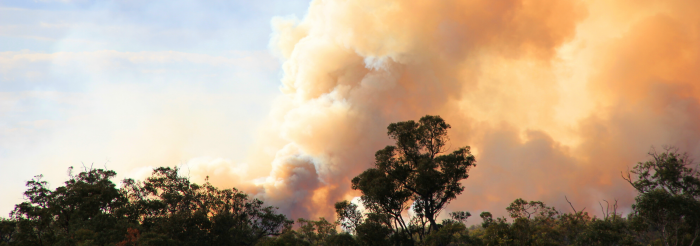
Bushfire information for the community
• Where can I get information on bushfires in my area?
To listen to updates on the ongoing situation you can tune into the official emergency radio broadcaster ABC Radio Sydney 702 AM.
Also use your mobile phone to download the ‘Fires Near Me’ app and also check the NSW Rural Fire Service website or facebook page for frequent information.
Additionally, you can follow ABC Emergency on Twitter and Facebook to stay in the loop with conditions and official Police, Fire and SES announcements.
• What should I do in the event that there is a bushfire emergency in my area?
Emergency situations are stressful times but it is important to stay calm so that you can think clearly and plan for a safe evacuation.
The best way to protect yourself, your family and your home is to plan ahead and be organised.
Here are some things you can do to prepare for a bushfire emergency
- Prearrange specific meeting places with your family and friends, both inside and outside your neighbourhood in case you are unable to get home. This will reduce the likelihood of being separated from loved ones.
- Store important documents such as passports, wills, drivers licenses, birth and marriage certificates, immigration and insurance documents in a safe place other than your home.
In the unfortunate event that you are forced to leave your home due to a bushfire it is important to make sure all your family’s essentials are ready and packed, so that you can escape in a smooth and timely fashion. Don’t forget items such as prescriptions, medication, torches and spare batteries and warm clothing, as well as enough food and water.
You can create your own emergency plan for you and your family using the Red Cross Rediplan which can be downloaded here.
You can also visit https://www.redcross.org.au/prepare for more advice on preparing for a bushfire.
• I am not directly affected by a fire but I am concerned about the associated health effects. What can I do?
Even if you are not directly affected by the bushfires it is important to reduce your risk of prolonged exposure to smoke inhalation.
Individuals with existing medical conditions such as heart or lung problems, those over the age of 65, children under 14, pregnant women and those living with diabetes are most at risk from health complications caused by smoke.
Please note that the Acting Chief Medical Officer and State and Territory Chief Health Officers have issued a warning that P2 masks are not recommended for general community use and should be limited to those with significant health issues, or those who work outside. You should seek the advice of a medical practitioner before using a P2 mask if you have an existing heart or lung condition.
Reducing the amount of time spent doing sustained physical activity outdoors is the best way to minimise smoke exposure. If you need to be outside for long periods you can monitor the quality of the air using mobile apps or visit the NSW Planning, Industry & Environment website for hourly updates: https://www.dpie.nsw.gov.au/air-quality/air-quality-concentration-data-updated-hourly/daily-air-quality-data
Staying in well-sealed and air conditioned indoor locations (work places, libraries, cinemas and shopping centres) when smoke affects your area will help to provide relief from pollution.
Ensure that your home is properly ventilated during periods of improved outdoor air quality, this will help to reduce the risk of smoke pollution in the home. Also avoid lighting candles and smoking indoors which can contribute to respiratory difficulties.
For more information on please visit: https://www.health.gov.au/news/information-about-bushfire-smoke-from-the-acting-chief-medical-officer

Get help and support
If someone is in immediate danger, call 000.
National Bushfire Recovery Agency advice and support
The National Bushfire Recovery Agency will oversee a Recovery Fund which will support all recovery efforts across Australia over the next two years. You can access support and key emergency contacts.
Please visit https://pmc.gov.au/domestic-policy/national-bushfire-recovery-agency or have a look at the Bushfire Recovery factsheet: https://pmc.gov.au/sites/default/files/files/bushfire-recovery-factsheet.pdf
For a list of resources for practical support (including accommodation, financial support and animal welfare) please visit: https://sydneynorthhealthnetwork.org.au/wp-content/uploads/2020/01/Bushfire-Recovery-Assistance.pdf
The Rural Fire Services translated fact sheets are available in Arabic, French, German, Greek, Hindi, Italian, Korean, Simplified Chinese, Traditional Chinese, Spanish, Tagalog, and Vietnamese. Please visit: https://www.rfs.nsw.gov.au/resources/factsheets/translated-fact-sheets
If you have lost your home in bushfire
You can apply for a Red Cross Emergency Grant: https://www.redcross.org.au/get-help/emergencies/recovering-from-emergencies/direct-assistance-contact
For information on smoke, masks, returning home safely, medications and prescriptions, support services and more
Please visit NSW Health: https://www.health.nsw.gov.au/environment/air/Pages/bushfire-smoke.aspx
The Australian Government this week released a statement (including FAQs) on the use of P2 masks to protect against bushfire smoke.
The Australian Medical Association (AMA) has also distributed a media release containing advice around respiratory health and checking on neighbours and loved ones.
Mental health support
Mental health services in the Northern Sydney region: https://sydneynorthhealthnetwork.org.au/mentalhealthtriage/mental-health-services/. Contact SNHN’s Mental Health Triage team for queries about the services on this page: 1300 782 391.
24/7 mental health and wellbeing assistance
Mental Health Line – 1800 011 511
Beyond Blue – 1300 224 636
Lifeline – 13 11 14
Mensline – 1300 789 978
Kids Helpline – 1800 551 800
The Federal Government has committed $76 million towards mental health support services for those affected by bushfires. This includes free counselling sessions, extra Medicare and tele-health consultations and the expansion of headspace.
About the allocation of dedicated funding to mental health responses and what is included
- A joint media release about the mental health package, including a funding breakdown from the Prime Minister’s Office and Minister Hunt’s Office https://www.health.gov.au/ministers/the-hon-greg-hunt-mp/media/immediate-mental-health-services-deployed-into-fire-affected-communities
- An FAQ about each initiative and the delivery plan and timing can be found here: https://www.health.gov.au/health-topics/emergency-health-management/bushfire-information-and-support/australian-government-mental-health-response-to-bushfire-trauma
To access immediate free counselling and other support (telehealth and Medicare sessions)
If you are in a bushfire affected community and would like to access counselling without a referral or mental health plan there are several opportunities:
- Visit your nearest recovery centre, evacuation centre, Mobile Services Centre or mental health services commissioned by Primary Health Networks to access free counselling services. (visit: health.gov.au/phn)
- Speak direct with a social worker or find out how to find and access support in your community by calling Contact Services Australia on 180 22
- Information about mental health support and how you can access these in fire affected areas can be found on the Human Services website: https://www.humanservices.gov.au/individuals/subjects/bushfire-recovery-access-program.
Consolidated Mental Health Information – Access Helplines, Resources, Disaster Toolkits and Fact Sheets
The Life in Mind team at Everymind have developed a comprehensive webpage which features a list of mental health sector helplines, disaster toolkits, resources and information which is updated regularly. Please visit: https://www.lifeinmindaustralia.com.au/mental-health-support-for-bushfire-affected-communities
Black Dog Institute psychological support resources – Coping with the Stress of the Bushfires https://blackdoginstitute.org.au/bushfire-support

